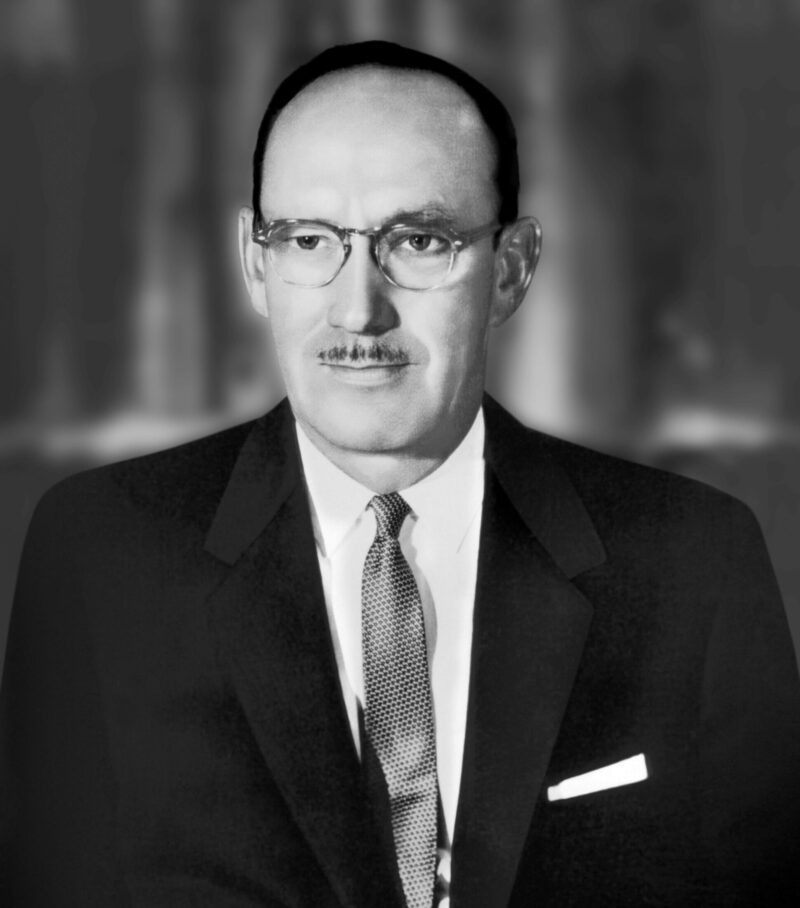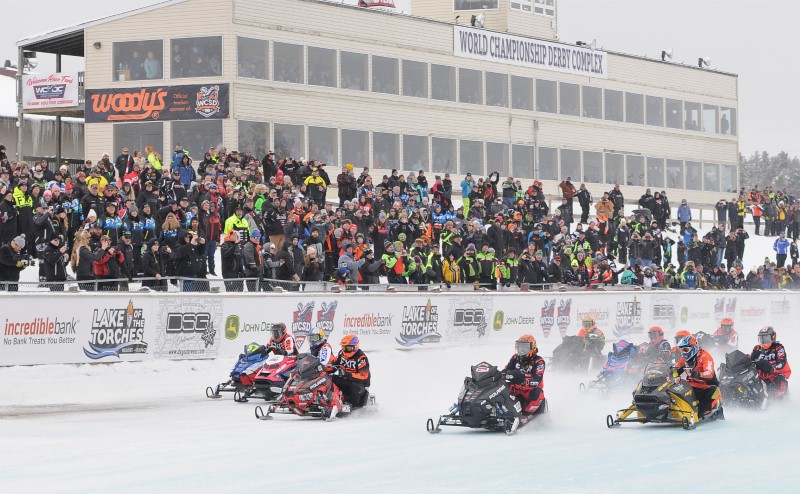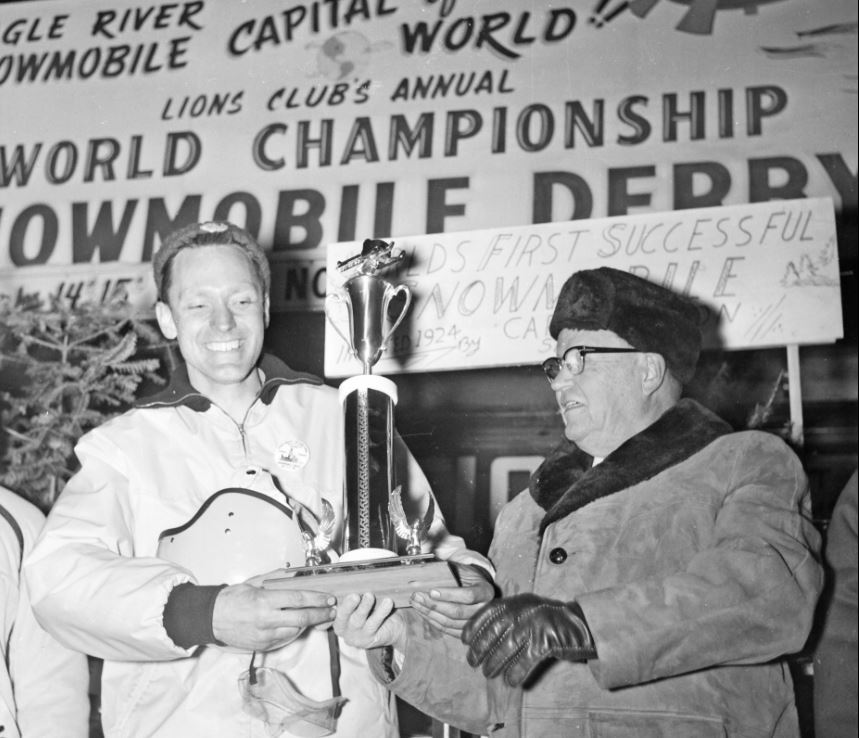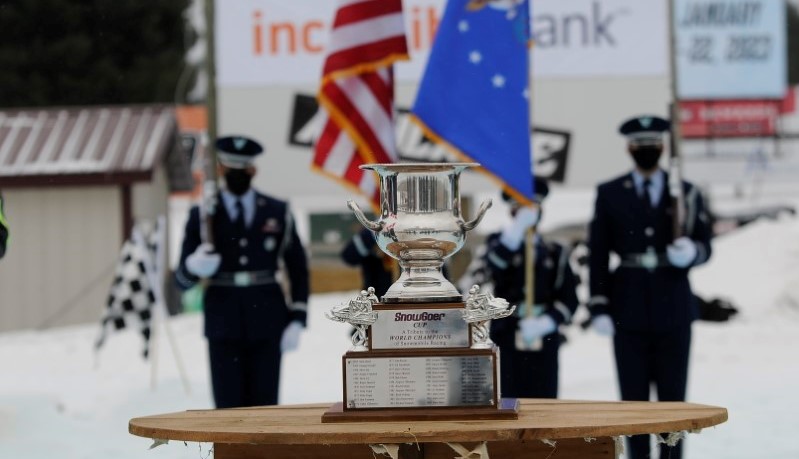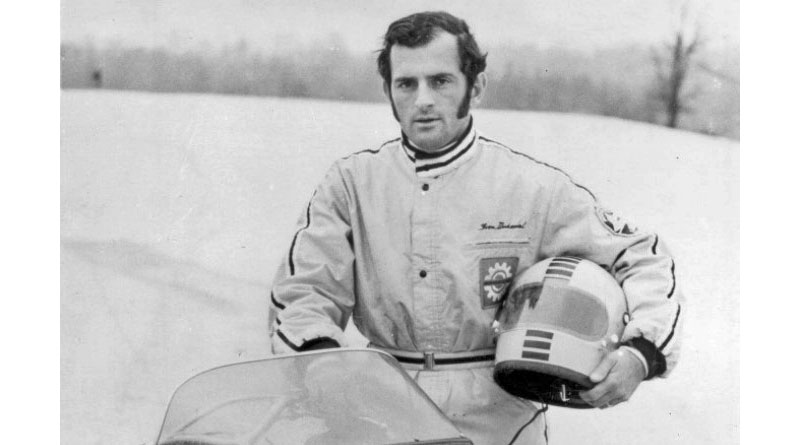
Many in the broad motorsports world – an especially those in Canada – reacted this week when word trickled out on the death of the legendary Yvon Duhamel on Tuesday, August 17, at the age of 81.
To snowmobilers, Duhamel was one of the sport’s first true mega-stars. He was one of the first “factory” Ski-Doo racers when he signed on to race for the brand’s team in 1969. He quickly became larger than life, despite his diminutive build.
He had an immediate impact on the race track, including winning the Eagle River World Championship in 1970. Quoted in Warriors of Winter (now available through the Top Of The Lake Snowmobile Museum), Duhamel described the race this way:
“I pulled into the first turn down low while everyone else went high. When we came out of the first time, I was in first place,” he said. “Then Duane Eck started to chase me.
“I was always using the same line around the track, going low into the turns. Duane was catching me so I figured I was doing something wrong. I changed my line and started going higher up the banks. I kept going higher. The higher I went the better I did. By the end of the race I was almost at the top of the track.
“I found out then,” Duhamel said, “that snowmobile racing was not like motorcycle racing. When you come around the track in snowmobile racing, the track changes. The snow changes or is gone or is older or something. You have to change your pattern.”
In 1971, he nearly repeated at Eagle River, but barely lost in an epic battle with Mike Trapp that many consider one of the most exciting races in the history of the sport. The 50th anniversary of that race was celebrated earlier this year.
Duhamel also excelled in other forms of sled racing, including earning Ski-Doo’s first victory in the Winnipeg-to-St. Paul International 500 cross-country race in 1972. In an article he penned after the race for Snow Goer magazine, Duhamel described his mindset:
“Many people ask us if there is a special way to prepare for the ‘500.’ Only if you want to win,” he wrote for the Snow Goer Racing Annual. “I entered the 1972 ‘500’ to win, like all the other races I enter. To win this race, I started on the project about two months before the race, fitting in testing, building my ‘Winnipeg’ machine and planning for the race with my regular racing schedule. As a member of the three-man Ski-Doo Can-Am Racing Team, I run a lot of races and it’s a little difficult to prepare completely for each one.
“The “500” is a very tough race,” Duhamel continued. “After running it and coming in first, my philosophy is that there are three most important things you need to win it. You need the man, you need the machine and you need lots of luck. The first two I can do something about. The last thing I can do something about by taking good care of the first two.
“I race all year. In the warm months, I race motorcycles on an international circuit. When the snow comes, I am back in the Ski-Doo barn at Valcourt, Quebec, to begin the snowmobile racing year. I stay in good physical shape so the man is ready when the season starts.” You can read the rest of that article here.
He also had countless snowmobile racing victories elsewhere before he left the sport in 1976.
Oh yeah, that motorcycle racing thing… Duhamel was also a legend on two wheels, gaining most acclaim as the driver of the neon green No. 17 Kawasaki. From flat track racing to road racing, Duhamel raced all over the world on bikes — and that’s how most of the motorsports community is recalling him, but he’ll always be a sled racer first to us! He even competed in a couple of NASCAR races on four wheels.
Yvon Duhamel was inducted in the racing-focused Snowmobile Hall of Fame (class of 1988), the Canadian Motorsport Hall of Fame (1999), the AMA Hall of Fame (1999) and the Canadian Motorcycle Hall of Fame (2007).

